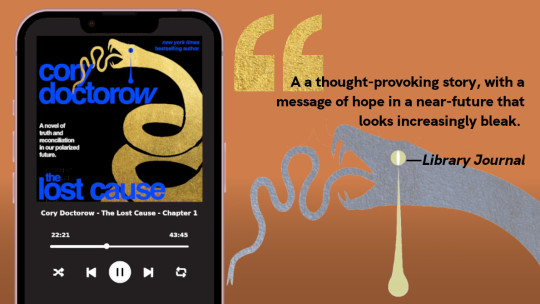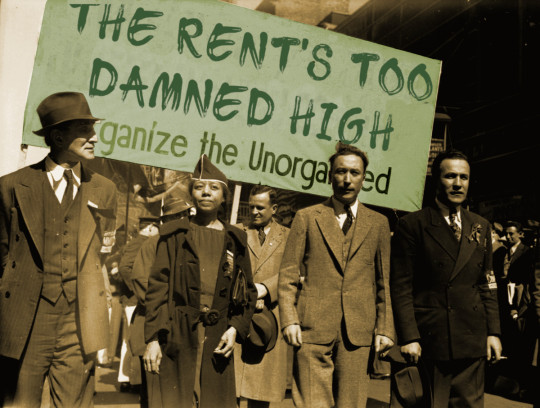#Abruzzo Live
Explore tagged Tumblr posts
Text
the major appeal of the Corn Maze is tapping into the human experience of Being Surrounded By Maize During Harvest . i love you corn and i love walking in circles under an autumn sun while you rustle gently and smell exactly as you always have for the past many hundreds of years at this same time in this same spot. effervescent
#i love where i live. at all times of the year there's always some ancient simple thing that direct-hits the timeless human experience button#me in the wintertime: wow for thousands of years we have huddled in shelters and put wood on the fire and thought about spring#me in the spring: wow for thousands of years someone has gone out and tapped the first tree of the season and saved up the sap#me in the summer: wow for thousands of years somebody has weeded squash here. beans even#me in the fall: i have GOT to be surrounded by corn so i can feel exactly the way im supposed to at this time. in this place#like it's not my ancestral experience. im not from here. we were in abruzzo until like eighty years ago. they dont have corn there#but at this time in this place there is corn and there has always been corn in this place. and i get to experience that. how COOL#at this time in this place there are maple trees and eastern white pines and there have been those trees#since as long and longer as there have been humans to look at them here. how COOL#harvest technology changes. populations change peacefully and then forcefully . the climate changes and is changing now#but for now. and for a time before me. there's corn here. and everyone who was here walked around in the corn#and if we are lucky then five hundred years from now someone can still plant and stand in and listen to the rustle of the corn
14 notes
·
View notes
Text

Wishing 🎈
(I want to live with no fear. Shilpa Gupta, 2010–)
7 notes
·
View notes
Text


Rocca Calascio, monti Appalachi.
0 notes
Text

𝘾𝙤𝙨𝙩 𝙤𝙛 𝙡𝙞𝙫𝙞𝙣𝙜 𝙞𝙣 𝘼𝙗𝙧𝙪𝙯𝙯𝙤 𝙖𝙣𝙙 𝙈𝙤𝙡𝙞𝙨𝙚
https://blog.exclusiveproperty.com/cost-of-living-in-abruzzo-and-molise/
#antiques#exclusiveproperty#italy#abruzzo#for sale#molise#houseforsale#Homes#Home#Property#Excellent#Coast#Adriatic#nature#mare#Sea#Majella#Matese#Summer#living
1 note
·
View note
Text
How Google’s trial secrecy lets it control the coverage

I'm coming to Minneapolis! Oct 15: Presenting The Internet Con at Moon Palace Books. Oct 16: Keynoting the 26th ACM Conference On Computer-Supported Cooperative Work and Social Computing.

"Corporate crime" is practically an oxymoron in America. While it's true that the single most consequential and profligate theft in America is wage theft, its mechanisms are so obscure and, well, dull that it's easy to sell us on the false impression that the real problem is shoplifting:
https://newrepublic.com/post/175343/wage-theft-versus-shoplifting-crime
Corporate crime is often hidden behind Dana Clare's Shield Of Boringness, cloaked in euphemisms like "risk and compliance" or that old favorite, "white collar crime":
https://pluralistic.net/2021/12/07/solar-panel-for-a-sex-machine/#a-single-proposition
And corporate crime has a kind of performative complexity. The crimes come to us wreathed in specialized jargon and technical terminology that make them hard to discern. Which is wild, because corporate crimes occur on a scale that other crimes – even those committed by organized crime – can't hope to match:
https://pluralistic.net/2021/10/12/no-criminals-no-crimes/#get-out-of-jail-free-card
But anything that can't go on forever eventually stops. After decades of official tolerance (and even encouragement), corporate criminals are finally in the crosshairs of federal enforcers. Take National Labor Relations Board general counsel Jennifer Abruzzo's ruling in Cemex: when a company takes an illegal action to affect the outcome of a union election, the consequence is now automatic recognition of the union:
https://pluralistic.net/2023/09/06/goons-ginks-and-company-finks/#if-blood-be-the-price-of-your-cursed-wealth
That's a huge deal. Before, a boss could fire union organizers and intimidate workers, scuttle the union election, and then, months or years later, pay a fine and some back-wages…and the union would be smashed.
The scale of corporate crime is directly proportional to the scale of corporations themselves. Big companies aren't (necessarily) led by worse people, but even small sins committed by the very largest companies can affect millions of lives.
That's why antitrust is so key to fighting corporate crime. To make corporate crimes less harmful, we must keep companies from attaining harmful scale. Big companies aren't just too big to fail and too big to jail – they're also too big for peaceful coexistence with a society of laws.
The revival of antitrust enforcement is such a breath of fresh air, but it's also fighting headwinds. For one thing, there's 40 years of bad precedent from the nightmare years of pro-monopoly Reaganomics to overturn:
https://pluralistic.net/ApexPredator
It's not just precedents in the outcomes of trials, either. Trial procedure has also been remade to favor corporations, with judges helping companies stack the deck in their own favor. The biggest factor here is secrecy: blocking recording devices from courts, refusing to livestream the proceedings, allowing accused corporate criminals to clear the courtroom when their executives take the stand, and redacting or suppressing the exhibits:
https://prospect.org/power/2023-09-27-redacted-case-against-amazon/
When a corporation can hide evidence and testimony from the public and the press, it gains broad latitude to dispute critics, including government enforcers, based on evidence that no one is allowed to see, or, in many cases, even describe. Take Project Nessie, the program that the FTC claims Amazon used to compel third-party sellers to hike prices across many categories of goods:
https://www.wsj.com/business/retail/amazon-used-secret-project-nessie-algorithm-to-raise-prices-6c593706
Amazon told the press that the FTC has "grossly mischaracterize[d]" Project Nessie. The DoJ disagrees, but it can't say why, because the Project Nessie files it based its accusations on have been redacted, at Amazon's insistence. Rather than rebutting Amazon's claim, FTC spokesman Douglas Farrar could only say "We once again call on Amazon to move swiftly to remove the redactions and allow the American public to see the full scope of what we allege are their illegal monopolistic practices."
It's quite a devastating gambit: when critics and prosecutors make specific allegations about corporate crimes, the corporation gets to tell journalists, "No, that's wrong, but you're not allowed to see the reason we say it's wrong."
It's a way to work the refs, to get journalists – or their editors – to wreathe bold claims in endless hedging language, or to avoid reporting on the most shocking allegations altogether. This, in turn, keeps corporate trials out of the public eye, which reassures judges that they can defer to further corporate demands for opacity without facing an outcry.
That's a tactic that serves Google well. When the company was dragged into court by the DoJ Antitrust Division, it demanded – and received – a veil of secrecy that is especially ironic given the company's promise "to organize the world's information and make it universally accessible and useful":
https://usvgoogle.org/trial-update-9-22
While this veil has parted somewhat, it is still intact enough to allow the company to work the refs and kill disfavorable reporting from the trial. Last week, Megan Gray – ex-FTC, ex-DuckDuckGo – published an editorial in Wired reporting on her impression of an explosive moment in the Google trial:
https://pluralistic.net/2023/10/03/not-feeling-lucky/#fundamental-laws-of-economics
According to Gray, Google had run a program to mess with the "semantic matching" on queries, silently appending terms to users' searches that caused them to return more ads – and worse results. This generated more revenue for Google, at the expense of advertisers who got billed to serve ads that didn't even match user queries.
Google forcefully disputed this claim:
https://twitter.com/searchliaison/status/1709726778170786297
They contacted Gray's editors at Wired, but declined to release all the exhibits and testimony that Gray used to form her conclusions about Google's conduct; instead, they provided a subset of the relevant materials, which cast doubt on Gray's accusations.
Wired removed Gray's piece, with an unsigned notice that "WIRED editorial leadership has determined that the story does not meet our editorial standards. It has been removed":
https://www.wired.com/story/google-antitrust-lawsuit-search-results/
But Gray stands by her piece. She admits that she might have gotten some of the fine details wrong, but that these were not material to the overall point of her story, that Google manipulated search queries to serve more ads at the expense of the quality of the results:
https://twitter.com/megangrA/status/1711035354134794529
She says that the piece could and should have been amended to reflect these fine-grained corrections, but that in the absence of a full record of the testimony and exhibits, it was impossible for her to prove to her editors that her piece was substantively correct.
I reviewed the limited evidence that Google permitted to be released and I find her defense compelling. Perhaps you don't. But the only way we can factually resolve this dispute is for Google to release the materials that they claim will exonerate them. And they won't, though this is fully within their power.
I've seen this playbook before. During the early months of the pandemic, a billionaire who owned a notorious cyberwarfare company used UK libel threats to erase this fact from the internet – including my own reporting – on the grounds that the underlying research made small, non-material errors in characterizing a hellishly complex financial Rube Goldberg machine that was, in my opinion, deliberately designed to confuse investigators.
Like the corporate crimes revealed in the Panama Papers and Paradise Papers, the gambit is complicated, but it's not sophisticated:
Make everything as complicated as possible;
Make everything as secret as possible;
Dismiss any accusations by claiming errors in the account of the deliberately complex arrangements, which can't be rectified because the relevant materials are a secret.

If you'd like an essay-formatted version of this post to read or share, here's a link to it on pluralistic.net, my surveillance-free, ad-free, tracker-free blog:
https://pluralistic.net/2023/10/09/working-the-refs/#but-id-have-to-kill-you


My next novel is The Lost Cause, a hopeful novel of the climate emergency. Amazon won't sell the audiobook, so I made my own and I'm pre-selling it on Kickstarter!

Image: Jason Rosenberg (modified) https://www.flickr.com/photos/underpants/12069086054/
CC BY https://creativecommons.org/licenses/by/2.0/
--
Japanexperterna.se (modified) https://www.flickr.com/photos/japanexperterna/15251188384/
CC BY-SA 2.0: https://creativecommons.org/licenses/by-sa/2.0/
#pluralistic#secrecy#opacity#google#antitrust#trustbusting#wired#working the refs#megan grey#semantic matching
2K notes
·
View notes
Text
random stuff about my hogwarts / marauders dr because i miss it there
(and i’m going back tonight anyway)
one day i couldn’t find my wand, i literally searched it everywhere and it was nowhere to be seen, so i couldn’t perform any spell in class and i got scolded for it, at the end of the day when i go back to my dorm and i sit on the bed to take my cat up since she has been there the whole day, only to find out that my wand was literally under her.
i’m half italian half french in my dr, and we own a house in france on the countryside where we usually go every summer (my grandparents, side of my dad, lives there), and one in abruzzo where we pass winter sometimes (not as often, sadly).
remus was my first kiss actually, we were 14 and everyone was getting a girlfriend/boyfriend and we were the only one who never got it experience that till then, we confessed that secret to each other one day and i asked him if he wanted to try kissing, and he accepted telling me that he thought it would be nice to be his first time since “i was pretty” (crying).
im literally a mix of my twin brothers. sirius is extroverted, talkative, touchy, extravagant, dramatic. regulus is introverted, silent and quiet and only speak when asked, hates physical touch, and loves being alone. i have all of those characteristics mixed, i don’t know how, in fact i struggle every day with my own identity lmao.
there’s many extra curricular activities. i’m in the book and cinema ones. it’s very chill, and nerdy i gotta admit, but i like it.
there’s many more, of course, but i think i’ll post other stuff another time(s).
#reality shifting#shifting#shifting realities#desired reality#shifted#success story#shifting to marauders era#shifting to hogwarts#shiftblr#shifting stories
94 notes
·
View notes
Text










Diego Costantini [1996], lives and works as a graphic designer and visual artist. Through the medium of photography he develops research about territory and identity in his homeland, Abruzzo.
15 notes
·
View notes
Text

Happy Whatever It's Monday. Thank you @you-remind-me-of-the-babe, @ivelovedhimthroughworse, @caramelcoffeeaddict, @bookish-bogwitch, @blackberrysummerblog, @nausikaaa , @that-disabled-princess and @artsyunderstudy for the tags over the past two weeks. I'll take a look at all your stuff tomorrow, since now I'm knackered. I just came back home from my vacation in Italy.
Ah Italy, of Paradiso fame.
A week ago, I actually visited Pescara in the Abruzzo region. I really wanted to go there, because in Paradiso, I made this region the vampire region of Italy and because of that, Rosemary Snow will attend the university of Pescara in the future. And I chose the Abruzzo region because I go there with my family, but when I chose that university, I learnt that Pescara is also the birthplace of fucking Gabriele D'Annunzio.
If you know Paradiso, you know.
So what can be found in Pescara? The house he was born in. It was closed on the day I dragged part of my family there, but I can say I have given the house the middle finger (Baz would be proud).


Also, Pescara tries very hard to make clear that D'Annunzio lived there. The first thing I saw when I left the car was a public dumpster with his face on it. An interesting choice.

I also wished I could at least see some of the university, just for shit and giggles, but it was on the other side of the old city centre and it was hot as balls that day, so I didn't want to make my family members suffer even more. I didn't tell them about Rosemary, because how do I explain that I want to see a birthplace of an Italian proto-fascist because the kid OC from my gay fanfic will live there in 2038 or something? For the house I just said I wanted to make photos for @martsonmars, which I did!
But yeah, it was fun to see the city where Rosemary will live, even though it will change over the years. ALSO, I admit I didn't know Pescara was a beach city!


By the way, these beach clubs in Pescara are crazy expensive, so we skipped them. Good thing Rosemary's dads are both loaded.
My aunts wanted to go to the city to shop and bla, bla, bla, shopping, but I did find a pair of trousers with this label, which made the entire ordeal so much more funny:

"Col. Rosa Paradiso". No idea what the col stands for. Colore?
But yeah, that is my little Pescara story. Now I am going to eat Chinese food and crash in bed.
And now, the weather: @quizasvivamos @coffeegleek @caramelcoffeeaddict @raenestee @tectonicduck
@nightimedreamersworld @urban-sith @confused-bi-queer @special-bc-ur-part-of-it @larkral @cutestkilla
@artsyunderstudy @facewithoutheart @shrekgogurt @rockitmans @bitbybitwrites
@whatevertheweather @shame-is-a-wasted-emotion @esilher @kurtsascot @nightimedreamersghost @thnxforknowingme @martsonmars
15 notes
·
View notes
Text
Psychohistory and the eternal people: Russian Ark and my grandpa's demise
[Disclaimer: for obvious reasons, this post deals in heavy subject matters regarding family death, natural disasters, and (worst of all) potential spoilers for Aleksandr Sokurov's Russian Ark. Reader's discretion is advised.]
So, remember when in the Ferrari post I said:
"We were at my grandparents' for Christmas and as we drove through the town my father looked out of the car's window and saw an obituary with his last name on it. I didn't quite catch who exactly it was and how they were related to us - and rest assured they most likely were, it's an Abruzzo thing. As most of my family's deaths, as discussed on my Godflesh post, were on my mother's side, to see my father's last name on a mortuary announcement was a bit of a surprise, in that as you probably can imagine it's also my last name. It's a new experience which, in total frankness, I don't exactly hope to replicate soon."
…anyways, July 17th, 2024 I get a phone call around 7:15pm. Grandpa is dead. Not like we didn't know, right — I hadn't been sleeping for days just so I could be awake when the phone call hit. Kidney collapse usually takes between twenty-four and forty-eight hours to get your ass. Grandpa took five days. Could have been three but the pacemaker did its job, unfortunately (not being able to contain any sort of discharge liquid is, how could I say?, immensely painful and irreversible). I had been living alone for the past three days, surviving on an empty fridge and anything canned I could find in my parents' house, working on my bachelor's thesis. Sometimes I'd watch a movie or something. So I'm reading this book on digital cinema — photonumerical, rather, as in it's still shot irl by an actual camcorder and not computer-generated — and of course Sokurov's Russian Ark gets namedropped in there. It's only one hour and a half anyways, so whatever, I watch it while eating lunch, i.e. canned tuna and perhaps salad from some kind of fucking plastic package.
Russian Ark takes every available opportunity to destroy flatness and depth, mixing them up into indistinction. Since the camera is constantly moving, zoom-ins and zoom-outs lose the exact sense of dimension. Objects, people and locales in the frame get squished, morphed, moved, and this is especially evident in Sokurov's frequent closeups on paintings. Usually never shot head-on, generally favouring an angled view of their surface, moving closer or further, left or right, up or down, slowly zooming in or our, paintings suffer the same effect as the three-dimensional objects of the movie, and therefore become one with them, achieving a manner of three-dimensionality and motion. Custine's impassioned reading of a Flemish painted interior (a Rembrandt, if memory serves) underlines all these moving elements, or elements that should be moving:
"Rags… a dog… eternal people…"
And it's these eternal people who "live and go on living… you'll outlive them all". It's these eternal people who gain motion in this medium, as opposed to all the non-eternal people who remain for all intents and purposes confined within the ark itself. History is a trap and art is perennially tasked to find a way to escape it, whether it realizes or not. A psychological (psychic?) reading of history, not too far away from psychogeographical practices, could be on display here: and while it may be much easier to be psychologically influenced by, say, the way a place looks rather than the mythologized recollection of a historical figure, as it stands a lot of people still romanticize and/or fantasize about Julius Caesar or general Armando Diaz or Dante Alighieri. Why not Catherine the Great or Peter the Great or Nicholas II's children then?
Russian Ark is not a particularly accurate historical movie. It's certainly very concerned with aesthetic matters first and foremost — as in, it mostly cares for its scenes to stick the emotional landing regardless of who is being portrayed, most of the time: does Sokurov really expect me to get emotional for the Romanovs? — and its whirlwind nature makes it especially hard to know what the fuck is going on if you don't know much about Russian history itself, mostly because the movie often flatout refuses to make itself clear. But this last thing is no issue to me. This should come as no surprise to anyone who can remember what my all-time favourite movies are. Miami Vice (2006) straight up hates you, the viewer, and dumps kilos upon kilos of technobabble and contrived dialogue on your ass only to hit you later with incredible aerial shots of a motorboat — I'm sorry, I do mean a go-fast boat — crossing the sea, where two people are passionately looking at each other and all of a sudden the movie finds its punctum, its center of interest. INLAND EMPIRE needs no introduction, mostly because I wouldn't know where to start giving one to it. The Warriors is a Walter Hill movie and as such it hates talking. Una giornata particolare rests on quite specific knowledge of practices against political dissidents in fascist Italy, but also loves to make references that would be impossible to catch if you don't know anything about contemporary Italy either (my favourite is when it reminds its audience that Giovanni Agnelli was a senator under Mussolini, wherein in the current day the Agnelli family basically own half of this country's industrial strength, and change). Mark Fisher still said it best: "[…] as Deleuze says in The Logic of Sense, why, if superficiality is defined as lack of depth, is depth not defined as lack of surface?".
Right before the funeral, my mother remarked that my sister looks a lot like my grandpa in some ways. Of course, my sister wasn't exactly amused by that comment, considering she's a sixteen-year-old girl and he was an eightyfive-year-old man with five sons of his own, so my mom decided to delve deeper into that mentioning exact points of comparison (my favourite was the nose, notoriously massive for every person in my father's family) and then went on to say "oh, but look, Grandpa used to be quite handsome when he was younger!". As a Star Trek enjoyer, it was hard not to mention that "handsome is what you call old women" while throwing your drink on Captain Picard's lapel.
Russian Ark celebrates a place (the Winter Palace, in Saint Petersburg) just as much as it celebrates the hundreds of years of human beings within it. Aleksandr Sokurov, I'm willing to bet, did not personally know everyone who ever lived there; the same operation directed by you and set in a generic apartment building in your area would probably yield more personal results. Russia's history is turned into a recombining mishmash by the fall of the Berlin Wall, but if you think about it anyone has cataclysmic events that force us to reconsider and recatalogue, leaving us with a jumbled, freely-associated mess of data, events, information. This mess allows for new connections to be born. Associations previously thought inadequate, inappropriate or simply impossible are now the first thing that springs to mind. Details are lost to time, then found at the next cataclysm, traded for others. Alain Resnais called memory an "evident necessity", which automatically entails that the processes of memorization (which includes forgetting, distancing effects, etc.) are themselves inevitable, if painful. Why deny it?, he rightfully asks.
My mate F.'s house was declared unsafe to inhabit after the August 2016 earthquake. It stood empty for about a year or two, then got demolished in (I think) 2019. For a really long time, all you could see were bits and pieces of the original tiling in the kitchen, the ascending line of paint that followed the stairs, the master bedroom's wallpaper. Pressed two-dimensionally against otherwise whitewashed walls, they projected outward their original full form, yearned for it to me. All of their history, or at least all of the history I had made experience of, sort of manifested itself, unfolded at random, reminded me of an offhand comment I'd heard once, or of that one time that F.'s grandfather had made it abundantly clear that I should avoid Psychology uni. The guy had been a Marxist-Leninist militant in the '50s and '60s, so I can at least justify his distaste.
After the pandemic, it took them about three years to actually get the work on the house started. When I came to visit Grandpa in the hospital, last June, I took the time to pass by and saw that it actually had been structured. They're changing the layout of the whole house, thank God, because the original structure always struck me as surprisingly inefficient and contrived. When the house is back up, I know it will not be the same thing, because the places themselves where the memories had been will no longer be there. But there will be an echo of aunt L. stuck in the new living room's ceiling, a past version of F.'s parents calling at us to get ready for dinner from across an empty expanse where there used to be a wall, or a door, F.'s dad's PlayStation One hooked up to a TV right in the middle of what used to be a tiled floor.
The process of historicization isn't that far off, anyway. Mythologizing practices are inherent in historiography, both folk and academic. This one scholar specializing in Carnival rites of Northern Italy went near Brescia once, in the mid-1900s, and asked a middle-aged farmer about traditional Carnival rites currently in practice at the time. The farmer described the current rites, then added that "after the Council of Trent, Carnival has become much worse". Quite flabbergasted, as there was no chance in hell that the woman had received education about an ecclesiastic event that took place in 1545, the scholar asked the lady if she knew when the Council of Trent had happened, and her reply was: "It must have been when my grandmother was alive or when my mother was young, because I wasn't born yet". Russian Ark takes the next logical step: everything happens all the time. No strong narratives means you make up your own, for better or worse. We all live in a yellow submarine, or more precisely in Noah's Ark, and every one of our arks is shaped slightly differently. Mine looks like a mountainside two-floor house that's painted white, where a lot of people come for big dinner parties just about every weekend of August, where my grandpa is sitting on a plastic chair, lighting a cigarette, silently watching around, smiling at the beauty and bustle of life. How does that one Fellini line go, from the end of 8½? "È una festa, la vita…"
4 notes
·
View notes
Text

CAMDEN'S ANNUAL ITALIAN STREET FESTIVAL:
Location: The Borough of Camden. Hosts: The British-Italian community of London. Date: 19th of July - 21st of July. Dress Code: None.
EVENT SUMMARY:
It's once again time for Camden's annual celebration of Italian pride! Whether you hail from the homeland or not, all are welcome to come and enjoy a weekend celebrating one of Europe's richest and most beautiful cultures. There will be distinct representation from Sicilia, Lazio, Calabria, Abruzzo, Veneto, and of course, thanks to London's thriving Neapolitan community, Campania, all showing off the best their region has to offer. The well loved and long established festival brings together people from all over the city to enjoy good food, even better company, and endless entertainment. The canals will be lined with tables for people to dine at; catered to by the authentic street vendors and fresh food stalls boasting the best Italian cuisine outside of the country itself. The market will be transformed to offer art, clothing, wine, and much more, created either by the community itself, or imported directly from Italy. When evening starts to fall, though? Grab your sambuca shots, wait for the music to fill the air, and watch as the real party begins. Primrose Hill will play host to a mini music festival all of its own on all three days, with a spotlight on both upcoming and established British-Italian musicians throughout the day and well into the night. Rumours say there might even be some guest appearances from Italian artists, too. And yes, there will be pop up bars and grab-and-go Neapolitan pizza ready for you. We're not forgetting this is still London and you're all messy af...
MAIN POINTS OF INTEREST:
Cheese & Wine Tasting (Friday afternoon) - What better way to get things started than sampling Italy's two most beloved exports? Offering a spectacular selection of Sicilian wines (thanks @ Mount Etna for your service), a laid-back wine tasting event will take place for anyone (old enough, you little shits) to enjoy. You'll also get to vote which region has the best cheese. Fight to the death, tbh.
Dinner & Dance (Friday night) - Once you're all sufficiently drunk on Sicily's offerings, the traditional live bands will start to play canal-side. Laze beside the water with your dinner, enjoy the warm weather, and be transported to the streets of Italy as you eat your bodyweight in pasta.
Pizza Making (Saturday afternoon) - If you're not too hungover from necking sambuca shots at the festival in the park, or from finishing that bottle of wine you probably shouldn't have, try your hand at making authentic Neapolitan pizza with some of the best chef's Camden's Italian scene has to offer. What do you win? Pride, bitch. That's all you need. You're Italian.
A Taste of the Opera (Saturday evening) - Fancy a spectacular rendition of Rigoletto? Probably not, you cultureless heathens, but the offer is there... Enjoy Verdi's masterpiece in the local community theatre, courtesy of the local youth operatic society. Support the local arts, bro.
Mini Venetian-Style Carnival (Sunday afternoon) - Yes, of course it's after Mass, don't worry... Head back down to the canal once more to watch London's best attempt at capturing the beauty and artistry of the Venetian Carnival. You'll also have a chance to make your own Venetian-style masks with the help of local artists. The creepier looking the better, apparently.
Drunk Shenanigans (All nights) - Because there's alcohol available from the vendors, and you've got an excuse to party in the streets? Go wild, bro.
6 notes
·
View notes
Text
SAINT OF THE DAY (July 18)

On July 18, the U.S. Catholic Church celebrates the feast day of Saint Camillus de Lellis, who turned from his life as a soldier and gambler to become the founder of an order dedicated to caring for the sick.
In some other countries, he is celebrated on the anniversary of his death, July 14.
Camillus was born on 25 May 1550 in the Abruzzo region of Naples in present-day Italy.
His mother died during his infancy. He lost his father, a former army officer, six years later.
The young man took after his late father professionally, serving in the armies of Venice and Naples until 1574.
During his military service, Camillus developed a severe gambling problem.
He repented of the habit in 1575, when he found himself impoverished and forced to do menial work for a group of Franciscans.
In February of that year, he resolved to change his life and soon sought to join the order.
A wound in one of his legs, however, was seen as incurable and kept him from becoming a Franciscan.
After this rejection, he traveled to Rome and worked for four years in a hospice.
Committed to a life of prayer and penance, he wore a hair shirt and received spiritual direction from St. Philip Neri.
Grieved by the quality of service given to the sick, Camillus decided to form an association of Catholics who would provide them with both physical and spiritual care.
He studied for the priesthood and was ordained in 1584.
Members of his order worked in hospitals, prisons, and in the homes of those afflicted by disease.
The order's original name, the “Fathers of a Good Death,” reflected the desire to aid in their spiritual salvation and prepare the dying to receive their last rites.
Later known as the Order of the Ministers of the Sick, or simply as the “Camillians,” the group received papal approval in 1586 and was confirmed as a religious order in 1591.
In addition to the traditional vows of poverty, chastity and obedience, they took a vow of unfailing service to the sick.
Camillus himself suffered physical ailments throughout his life.
His leg wound failed to heal over the course of almost five decades, in addition to which he suffered from sores and severe kidney trouble.
But he is said to have spent time with the sick even while unable to walk by crawling from bed to bed.
The founder of the Ministers of the Sick lived to assist at a general chapter of his order in Rome during 1613 and to make a last visitation of many of their hospitals.
Learning that he himself was incurably ill, Camillus responded:
“I rejoice in what has been told me. We shall go into the house of the Lord.”
Receiving the Eucharist for the last time, he declared:
“O Lord, I confess I am the most wretched of sinners, most undeserving of your favor; but save me by your infinite goodness.
My hope is placed in your divine mercy through your precious blood.”
After giving his last instructions to his fellow Ministers of the Sick, Camillus de Lellis died on 14 July 1614.
Pope Benedict XIV beatified him in 1742 and canonized in 1746.
Camillus De Lellis is the patron saint of the sick, hospitals, nurses, and physicians. His assistance is also invoked against gambling.
In 1886, Pope Leo XIII proclaimed him patron of all hospitals and of the sick.
In 1930, he was later named – along with Saint John of God – as one of the two main co-patrons of nurses and nursing associations.
2 notes
·
View notes
Text
today i honor eileen, who died an hour ago. she was a simple woman with simple tastes: good tomato sauce, not very good beer (the lady drank rolling rocks, but hey), homemade bread. she had ten children, nine of whom she gave birth to, and still liked babies enough to open an unofficial daycare at her home in the seventies. she sewed decently, baked wonderfully (a lot of her baked goods were slightly overdone thanks to a very old oven, but her piecrust is still the best recipe i've ever used. her soda bread was a bit sweeter than average, and now i don't like any other soda bread but her sugary, curranty loaf with a thick swipe of butter. she sang with a rich, warbly vibrato that i sometimes hear in my own voice when i'm excited enough. she played piano, not well, but all her life, more or less until she couldn't anymore. fur elise was her favorite piece to break out and show off. as long as i can remember, there was a puzzle on the vinyl tablecloth in the sunroom at her house. there probably is right now, 300-piece to accommodate for her increasing dementia, which would no longer allow her to do more complex ones. she had so many children and grandchildren that she rotated their pictures out on the top of the piano, always by birthday month. this month there would be my eldest aunt, my grandfather, and my brother. she was one of the scattered living diaspora of a tiny town in abruzzo - pacentro, population one thousand, which she visited once in the early oughts. my father used the photos she took there to paint a landscape of her family's hometown, which hung in her living room with the dark green couches and the long floral curtains as long as i can remember. when she still could, she and my grandfather would make the trip to our house in the height of summer, where pappy would pick grapes from our arbor or take home elderberries or the largest and woodiest of our green beans (he likes them that way - tough and starchy). she would nap on the couch (a ritual she called Resting Her Eyes) and then read to us: The Sleeping Giant, Tomie DePaola, anything she'd bought for us at some previous time. she read widely. towards the end, when what she could do was limited, she read pretty much all day long. it didn't matter what. i'm forgetting a million things about her even now. i've missed her for years, as she disappeared by pieces. but i loved her, and by god, i know she loved well.



#that's her with my mom about two years ago#it's not a very good picture of the painting#but i took it a long time ago and i wasnt really thinking about it#that dried flower arrangement has also been below it for as long as i can remember lol#when i get the chance i think i'll put together a little booklet of her staple recipes#for the family. but it might be nice to post it here too. if there's anything my grandma would appreciate#it's people making her food#another cool thing about eileen carney is of course the fact that she outlived the queen of england by a cool six months
39 notes
·
View notes
Text



Anellini alla pecorara 🤤
in Abruzzo con @chefdavidenanni, aspettando di andare nel bosco da lui…❤️🔥
🟢 𝚂𝙰𝙻𝚅𝙰
🎶 𝙲𝙰𝙽𝚃𝙰 &
🍳 𝙲𝚄𝙲𝙸𝙽𝙰!
#𝘳𝘪𝘤𝘦𝘵𝘵𝘢 𝘱𝘦𝘳 𝘷𝘦𝘳𝘪 𝘈𝘣𝘳𝘶𝘻𝘻𝘦𝘴𝘪👌
👇 𝕀ℕ𝔾ℝ𝔼𝔻𝕀𝔼ℕ𝕋𝕀 👇
Per la pasta:
☺︎ 200g di farina di semola
☺︎ 100g di farina 0
☺︎ 1 uovo
☺︎ 120g di acqua tiepida
☺︎ Un pizzico di sale
Per la salsa:
☺︎ 1 cipolla
☺︎ 2 peperoni
☺︎ 3 zucchine
☺︎ 2 melanzane
☺︎ 8 pomodorini
☺︎ Ricotta salata Qb
☺︎ Sale
☺︎ Olio evo
👇 ℙℝ𝕆ℂ𝔼𝔻𝕀𝕄𝔼ℕ𝕋𝕆 👇
1. Impastiamo la farina con il sale, l’uovo e l’acqua tiepida
2. Creiamo dei biroli come per gli gnocchi ma più sottili, li giriamo intorno al dito indice e chiudiamo creando così gli anellini
3. In una padella antiaderente mettiamo l’olio, la cipolla, i peperoni, le zucchine, le melanzane e i pomodorini, tutte tagliate a cubetti piccoli
4. Facciamo cuocere con un pò d’acqua
5. Mettiamo a bollire una pentola con acqua salata e cuociamo i nostri anellini
6. Una volta cotti, li saltiamo nel sugo e completiamo il piatto con una bella grattugiata di ricotta di pecora salata!
Questa è proprio una ricetta per veri duri, per veri Wild!🔥💪
𝘙𝘪𝘤𝘦𝘵𝘵𝘢 𝘪𝘯 𝘭𝘦𝘨𝘨𝘦𝘳𝘦𝘻𝘻𝘢. 𝘋𝘢 𝘯𝘰𝘯 𝘤𝘰𝘯𝘧𝘰𝘯𝘥𝘦𝘳𝘦 𝘤𝘰𝘯 𝘴𝘶𝘱𝘦𝘳𝘧𝘪𝘤𝘪𝘢𝘭𝘪𝘵𝘢̀.
𝘌̀ 𝘱𝘳𝘦𝘻𝘪𝘰𝘴𝘢, 𝘮𝘢𝘯𝘦𝘨𝘨𝘪𝘢𝘳𝘦 𝘤𝘰𝘯 𝘤𝘶𝘳𝘢 🤗
_________😉❤️👩🍳💋________
#anelliniallapecorara #pecorara #abruzzo #ricettaabruzzese #chefdavidenanni #jsowild #wild #live #diretta #elisacuorecucinaechiacchiere #elisaccc #popolofelice #leggerezza #buonumore #racconti #risate #ricette #food #foodlover #cucina #passione
.....
Eu traduzo para as #pessoasfelizes! 😂:
Anéis de ovelha 🤤
em Abruzzo com Chef Davide, esperando para ir para a floresta com ele...❤️🔥
🟢 𝚂𝙰𝙻𝚅𝙰𝚁
🎶 𝙲𝙰𝙽𝚃𝙰��� &
🍳 𝙲𝙾𝚉𝙸𝙽𝙷𝙾𝚄!
#𝘳𝘦𝘤𝘦𝘪𝘵𝘢 𝘱𝘢𝘳𝘢 𝘰 𝘷𝘦𝘳𝘥𝘢𝘥𝘦𝘪𝘳𝘰 𝘱𝘰𝘷𝘰 𝘥𝘦 𝘈𝘣𝘳𝘶𝘻𝘻𝘰👌
👇 𝕀ℕ𝔾ℝ𝔼𝔻𝕀𝔼ℕ𝕋𝔼𝕊 👇
Para macarrão:
☺︎ 200g de farinha de semolina
☺︎ 100g de farinha 0
☺︎ 1 ovo
☺︎ 120g de água morna
☺︎ Uma pitada de sal
Para o molho:
☺︎ 1 cebola
☺︎ 2 pimentas
☺︎ 3 abobrinhas
☺︎ 2 berinjelas
☺︎ 8 tomates cereja
☺︎ Ricota salgada a gosto
☺︎ Sal
☺︎ Óleo Evo
👇 𝕄𝔼́𝕋𝕆𝔻𝕆 👇
1. Misture a farinha com o sal, o ovo e a água morna
2. Criamos biroli como o nhoque, mas mais fino, giramos no dedo indicador e fechamos criando os anéis
3. Numa frigideira antiaderente coloque o azeite, a cebola, os pimentos, as abobrinhas, as beringelas e os tomates cereja, tudo cortado em cubinhos.
4. Cozinhe com um pouco de água
5. Vamos ferver uma panela com água e sal e cozinhar nossos anéis
6. Depois de cozidos salteamos no molho e completamos o prato com uma bela ralada de ricota de ovelha salgada!
Esta é realmente uma receita para caras realmente durões, para verdadeiros Wilds!🔥💪
𝘙𝘦𝘤𝘦𝘪𝘵𝘢 𝘤𝘰𝘮 𝘭𝘦𝘷𝘦𝘻𝘢. 𝘕ã𝘰 𝘤𝘰𝘯𝘧𝘶𝘯𝘥𝘪𝘳 𝘤𝘰𝘮 𝘴𝘶𝘱𝘦𝘳𝘧𝘪𝘤𝘪𝘢𝘭𝘪𝘥𝘢𝘥𝘦.
É 𝘱𝘳𝘦𝘤𝘪𝘰𝘴𝘰, 𝘮𝘢𝘯𝘶𝘴𝘦𝘪𝘦 𝘤𝘰𝘮 𝘤𝘶𝘪𝘥𝘢𝘥𝘰 🤗
_________😉❤️👩🍳💋________
#receitaitaliana #cozinhaitaliana #receitatradicional #cozinha #cozinhou #bomhumor #histórias #risos #receitas
#elisacuorecucinaechiacchiere#popolofelice#passione#risate#cucina#felicità#mudita#ricetta#buonumore#elisaccc#abruzzo#cucina abruzzese#anellini alla pecorara#pasta#home made pasta#pasta fatta in casa
2 notes
·
View notes
Text

Cost of living in Abruzzo and Molise
0 notes
Text
Housing is a labor issue

There's a reason Reagan declared war on unions before he declared war on everything else – environmental protection, health care, consumer rights, financial regulation. Unions are how working people fight for a better world for all of us. They're how everyday people come together to resist oligarchy, extraction and exploitation.
Take the 2019 LA teachers' strike. As Jane McAlevey writes in A Collective Bargain, the LA teachers didn't just win higher pay for their members! They also demanded (and got) an end to immigration sweeps of parents waiting for their kids at the school gate; a guarantee of green space near every public school in the city; and on-site immigration counselors in LA schools:
https://pluralistic.net/2023/04/23/a-collective-bargain/
Unionization is enjoying an historic renaissance. The Hot Labor Summer transitioned to an Eternal Labor September, and it's still going strong, with UAW president Shawn Fain celebrating his members victory over the Big Three automakers by calling for a 2028 general strike:
https://www.teenvogue.com/story/uaw-general-strike-no-class
The rising labor movement has powerful allies in the Biden Administration. NLRB general counsel Jennifer Abruzzo is systematically gutting the "union avoidance" playbook. She's banned the use of temp-work app blacklists that force workers to cross picket lines:
https://pluralistic.net/2023/07/30/computer-says-scab/#instawork
She's changed the penalty for bosses who violate labor law during union drives. It used to be the boss would pay a fine, which was an easy price to pay in exchange for killing your workers' union. Now, the penalty is automatic recognition of the union:
https://pluralistic.net/2023/09/06/goons-ginks-and-company-finks/#if-blood-be-the-price-of-your-cursed-wealth
And while the law doesn't allow Abruzzo to impose a contract on companies that refuse to bargain their unions, she's set to force those companies to honor other employers' union contracts until they agree to a contract with their own workers:
https://onlabor.org/gc-abruzzo-just-asked-the-nlrb-to-overturn-ex-cell-o-heres-why-that-matters/
She's also nuking TRAPs, the deals that force workers to repay their employers for their "training expenses" if they have the audacity to quit and get a better job somewhere else:
https://pluralistic.net/2023/09/14/prop-22-never-again/#norms-code-laws-markets
(As with every aspect of the Biden White House, its labor policy is contradictory and self-defeating, with other Biden appointees working to smash worker power, including when Biden broke the railworkers' strike:)
https://pluralistic.net/2023/09/18/co-determination/#now-make-me-do-it
A surging labor movement opens up all kinds of possibilities for a better world. Writing for the Law and Political Economy Project, UNITE Here attorney Zoe Tucker makes the case for unions as a way out of America's brutal housing crisis:
https://lpeproject.org/blog/why-unions-should-join-the-housing-fight/
She describes how low-waged LA hotel workers have been pushed out of neighborhoods close to their jobs, with UNITE Here members commuting three hours in each direction, starting their work-days at 3AM in order to clock in on time:
https://twitter.com/MorePerfectUS/status/1669088899769987079
UNITE Here members are striking against 50 hotels in LA and Orange County, and their demands include significant cost-of-living raises. But more money won't give them back the time they give up to those bruising daily commutes. For that, unions need to make housing itself a demand.
As Tucker writes, most workers are tenants and vice-versa. What's more, bad landlords are apt to be bad bosses, too. Stepan Kazaryan, the same guy who owns the strip club whose conditions were so bad that it prompted the creation of Equity Strippers NoHo, the first strippers' union in a generation, is also a shitty landlord whose tenants went on a rent-strike:
https://pluralistic.net/2023/05/20/the-missing-links/#plunderphonics
So it was only natural that Kazaryan's tenants walked the picket line with the Equity Stripper Noho workers:
https://twitter.com/glendaletenants/status/1733290276599570736?s=46
While scumbag bosses/evil landlords like Kazaryan deal out misery retail, one apartment building at a time, the wholesale destruction of workers' lives comes from private equity giants who are the most prolific source of TRAPs, robo-scabbing apps, illegal union busting, and indefinite contract delays – and these are the very same PE firms that are buying up millions of single-family homes and turning them into slums:
https://pluralistic.net/2022/02/08/wall-street-landlords/#the-new-slumlords
Tucker's point is that when a worker clocks out of their bad job, commutes home for three hours, and gets back to their black-mold-saturated, overpriced apartment to find a notice of a new junk fee (like a surcharge for paying your rent in cash, by check, or by direct payment), they're fighting the very same corporations.
Unions who defend their workers' right to shelter do every tenant a service. A coalition of LA unions succeeded in passing Measure ULA, which uses a surcharge on real estate transactions over $5m to fund "the largest municipal housing program in the country":
https://unitedtohousela.com/app/uploads/2022/05/LA_City_Affordable_Housing_Petition_H.pdf
LA unions are fighting for rules to limit Airbnbs and other platforms that transform the city's rental stock into illegal, unlicensed hotels:
https://upgo.lab.mcgill.ca/publication/strs-in-los-angeles-2022/Wachsmuth_LA_2022.pdf
And the hotel workers organized under UNITE Here are fighting their own employers: the hoteliers who are aggressively buying up residences, evicting their long-term tenants, tearing down the building and putting up a luxury hotel. They got LA council to pass a law requiring hotels to build new housing to replace any residences they displace:
https://www.latimes.com/california/story/2023-11-28/airbnb-operators-would-need-police-permit-in-l-a-under-proposed-law
UNITE Here is bargaining for a per-room hotel surcharge to fund housing specifically for hotel workers, so the people who change the sheets and clean the toilets don't have to waste six hours a day commuting to do so.
Labor unions and tenant unions have a long history of collaboration in the USA. NYC's first housing coop was midwifed by the Amalgamated Clothing Workers of America in 1927. The Penn South coop was created by the International Ladies Garment Workers’ Union. The 1949 Federal Housing Act passed after American unions pushed hard for it:
http://www.peterdreier.com/wp-content/uploads/2014/07/Labors-Love-Lost.pdf
It goes both ways. Strong unions can create sound housing – and precarious housing makes unions weaker. Remember during the Hollywood writers' strike, when an anonymous studio ghoul told the press the plans was to "allow things to drag on until union members start losing their apartments and losing their houses?"
Vienna has the most successful housing in any major city in the world. It's the city where people of every income and background live in comfort without being rent-burdened and without worry about eviction, mold, or leaks. That's the legacy of Red Vienna, the Austrian period of Social Democratic Workers' Party rule and built vast tracts of high-quality public housing. The system was so robust that it rebounded after World War II and continues to this day:
https://www.politico.eu/article/vienna-social-housing-architecture-austria-stigma/
Today, the rest of the world is mired in a terrible housing crisis. It's not merely that the rent's too damned high (though it is) – housing precarity is driving dangerous political instability:
https://pluralistic.net/2021/06/06/the-rents-too-damned-high/
Turning the human necessity of shelter into a market commodity is a failure. The economic orthodoxy that insists that public housing, rent control, and high-density zoning will lead to less housing has failed. rent control works:
https://pluralistic.net/2023/05/16/mortgages-are-rent-control/#housing-is-a-human-right-not-an-asset
Leaving housing to the market only produces losers. If you have the bad luck to invest everything you have into a home in a city that contracts, you're wiped out. If you have the bad luck into invest everything into a home in a "superstar city" where prices go up, you also lose, because your city becomes uninhabitable and your children can't afford to live there:
https://pluralistic.net/2021/09/27/lethal-dysfunction/#yimby
A strong labor movement is the best chance we have for breaking the housing deadlock. And housing is just for starters. Labor is the key to opening every frozen-in-place dysfunction. Take care work: the aging, increasingly chronically ill American population is being tortured and murdered by private equity hospices, long-term care facilities and health services that have been rolled up by the same private equity firms that destroyed work and housing:
https://pluralistic.net/2023/04/26/death-panels/#what-the-heck-is-going-on-with-CMS
In her interview with Capital & Main's Jessica Goodheart, National Domestic Workers Alliance president Ai-jen Poo describes how making things better for care workers will make things better for everyone:
https://prospect.org/labor/2023-12-13-labor-leader-ai-jen-poo-interview/
Care work is a "triple dignity investment": first, it makes life better for the worker (most often a woman of color), then, it allows family members of people who need care to move into higher paid work; and of course, it makes life better for people who need care: "It delivers human potential and agency. It delivers a future workforce. It delivers quality of life."
The failure to fund care work is a massive driver of inequality. America's sole federal public provision for care is Medicaid, which only kicks in after a family it totally impoverished. Funding care with tax increases polls high with both Democrats and Republicans, making it good politics:
https://www.dataforprogress.org/blog/2021/4/7/voters-support-investing-in-the-care-economy
Congress stripped many of the care provisions from Build Back Better, missing a chance for an "unprecedented, transformational investment in care." But the administrative agencies picked up where Congress failed, following a detailed executive order that identifies existing, previously unused powers to improve care in America. The EO "expands access to care, supports family caregivers and improves wages and conditions for the workforce":
https://www.whitehouse.gov/briefing-room/presidential-actions/2023/04/18/executive-order-on-increasing-access-to-high-quality-care-and-supporting-caregivers/
States are also filling the void. Washington just created a long-term care benefit:
https://apnews.com/article/washington-long-term-care-tax-disability-cb54b04b025223dbdba7199db1d254e4
New Mexicans passed a ballot initiative that establishes permanent funding for child care:
https://www.cwla.org/new-mexico-votes-for-child-care/
New York care workers won a $3/hour across the board raise:
https://inequality.org/great-divide/new-york-budget-fair-pay-home-care/
The fight is being led by women of color, and they're kicking ass – and they're doing it through their unions. Worker power is the foundation that we build a better world upon, and it's surging.

If you'd like an essay-formatted version of this post to read or share, here's a link to it on pluralistic.net, my surveillance-free, ad-free, tracker-free blog:
https://pluralistic.net/2023/12/13/i-want-a-roof-over-my-head/#and-bread-on-the-table
#pluralistic#labor#hot labor summer#eternal labor september#jane mcalevey#los angeles#weaponized shelter#housing#airbnb#equity strip noho#tenants unions#red vienna#jennifer abruzzo#nlrb#the rent's too damned high
1K notes
·
View notes
Text
Today, the Church remembers St. Thomas the Apostle, who was was one of the Twelve Apostles of Jesus.
Ora pro nobis.
Thomas was born in 1st century AD Galilee, Israel, then a part of the Roman Empire (and again now in present-day Israel) and died on 21 December 72 AD in Parangimalai, Chennai, Chola Empire (present-day St. Thomas Mount, Tamil Nadu, India). “Thoma” means twin, so he has an unnamed twin brother, and his given name was Judah, or Jude.
Thomas is sometimes referred to as "Doubting Thomas" because he doubted Jesus' resurrection when he was first told by the other apostles (in the Gospel of John account only). When he finally later saw Jesus, who told him to touch him, and place his fingers into his scars of crucifixion, Thomas fell to his knees and proclaimed the great confession of faith, "My Lord and my God!”
Traditionally, Thomas is believed to have travelled outside the Roman Empire to preach the Gospel, travelling as far as Tamilakam, India, which are the states of Tamil Nadu and Kerala in present-day India. According to tradition, Thomas reached Muziris, (modern-day North Paravur and Kodungalloor in the state of Kerala, India) in AD 50 and baptized several people, founding what today are known as Saint Thomas Christians or Mar Thoma Nazranis. After his death, the reputed relics of Saint Thomas the Apostle were enshrined as far as Mesopotamia in the 3rd century, and later moved to various places. In 1258 AD, some of the relics were brought to Abruzzo in Ortona, Italy, where they have been held in the Church of Saint Thomas the Apostle. He is often regarded as the Patron Saint of India, and the name Thoma remains quite popular among Saint Thomas Christians of India.
Everliving God, who strengthened your apostle Thomas with firm and certain faith in your Son’s resurrection: Grant us so perfectly and without doubt to believe in Jesus Christ, our Lord and our God, that our faith may never be found wanting in your sight; through him who lives and reigns with you and the Holy Spirit, one God, now and for ever.
Amen.

#father troy beecham#christianity#jesus#saints#god#salvation#peace#martyrs#faith#early church#new testament
2 notes
·
View notes